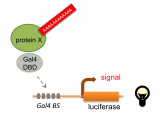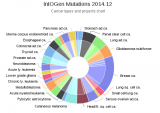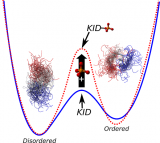
18/05/2015
GRIB coordinates the new H2020 project MedBioinformatics
The project MedBioinformatics aims to develop useful bioinformatics tools and applications, and autonomously usable for analysing the huge amount of data and knowledge generated in healthcare and biomedical research in order to facilitate translational research and precision medicine.
According to Ferran Sanz, Director of GRIB (IMIM-UPF) and coordinator of this project, "most potential users, i.e. translational researchers and health professionals, do not have adequate tools to efficiently exploit this large and heterogeneous amount of information. So far, efforts to develop bioinformatics methods and tools have not produced the expected impact in healthcare environments". Ferran Sanz added that this is primarily due to two reasons "on one hand, the lack of integrative strategies that effectively combine the diverse types of data that are available in different repositories around the world. On the other hand, there is a lack of involvement of end users during the process of creating applications to identify the information they really need and to present it in the most appropriate format. We must develop applications that integrate, analyse and show biomedical information in a way that is immediately understandable and useful to end users."

11/05/2015
A collaboration between researchers at GRIB and CRG explores the role of amino acid tandem repeats in the diversification of duplicated proteins
Expansions of amino acid tracts in proteins are famous for causing a number of neurodegenerative and developmental diseases. However, these regions are also an important motor for evolution, as recently shown in an article appeared in Molecular Biology and Evolution coauthored by the Evolutionary Genomics group of GRIB (IMIM-UPF) led by Mar Albà and the Gene Function group of CRG led by Susana de la Luna.
The complexity of vertebrates is related to two whole genome duplications occurred at the origin of the group. After these events, many developmental regulators were retained in multiple copies and later acquired different functions. The authors have shown that a large number of transcription factors gained new amino acid tandem repeats after the duplication. In experiments performed in families containing poly-alanine tracts, deletion of the repeat recapitulates the ancestral protein transcriptional activity, making the two copies alike again. The results support the idea that repeats played an important role in in the diversification of transcriptional networks during vertebrate evolution.
Article ref.: Núria Radó-Trilla, Krisztina Arató, Cinta Pegueroles, Alicia Raya, Susana de la Luna* and M.Mar Albà*. Key role of amino acid repeat expansions in the functional diversification of duplicated transcription factors. Molecular Biology and Evolution, April 29, 2015, Advance Access. *co-corresponding

GRIB participates in the european project ELIXIR-EXCELERATE
GRIB takes part of the european project ELIXIR-EXCELERATE awarded with €19 million from the European Union to accelerate the implementation of Europe’s life-science data infrastructure over the next four years. From September 2015, ‘ELIXIR-EXCELERATE’ will facilitate the integration of Europe’s bioinformatics resources, supporting all sectors of life-science R&D. It will deliver excellence to ELIXIR’s users by fast-tracking the development and deployment of essential data services.
ELIXIR Director Niklas Blomberg says, “I am delighted that the EU is supporting this high-impact project. In the age of big data, it is critical that we can all make the most of the bioinformatics capacity that has been developed in each of our member states. This will make a difference to Europe's 500,000 life-science researchers, who need public research data to be managed well over the long term so it can be reused to maximum effect. EXCELERATE will bring about a step change in how bioinformatics services are coordinated across Europe, ensuring they are integrated, grow in step with the advent of new technologies, and maintained appropriately over the long term.”

04/05/2015
The eTOX Hackathon starts today at PRBB
The first eTOX Hackathon will be celebrated from 4th to 7th of May at the Barcelona Biomedical Research Park (PRBB). The objective of this event is to gather multidisciplinary teams from academic, SME and EFPIA partners to work on a limited number of cases that require close, hands-on collaboration between modellers and toxicologists. The goal of this exercise will be to mine the collected eTOX data in order to derive new in silico models. 4 challenges have been designed and an attendance of over 30 people is confirmed.

28/04/2015
El GRIB participa en el Debate “Big Data: Big opportunity?” organizado por Esade Alumni
Miguel Ángel Mayer, médico de Familia y miembro del Grupo de Investigación en Informática Biomédica Integrada del GRIB (IMIM-UPF) ha participado en el Debate “Big Data: Big opportunity?” organizado por los clubes de Salud-Farma y Digital Business de Esade Alumni el pasado jueves 23 de Abril en Barcelona. El debate abordó diferentes aspectos relacionados con la aplicación del Big Data en medicina tanto en la vertiente clínica como de investigación y se analizó el proyecto de Big Data (Visc+) de la Generalitat de Cataluña.
La intervención de MA Mayer defendió la importancia que el Big Data puede tener en la investigación biomédica y señaló que "el Big Data no sólo nos permite acceder y gestionar grandes volúmenes de datos, sino también la utilización de datos de mayor calidad”.
Entre las conclusiones del debate cabe destacar que los beneficios de la utilización de grandes volúmenes de datos clínicos digitalizados por parte de investigadores y empresas superan ampliamente los riesgos potenciales, siempre que se garantice en todo momento privacidad y la protección de los datos personales de acuerdo a la legislación vigente.

28/04/2015
The Department of Experimental and Health Sciences (DCEXS) of the UPF has been recognized as a "María de Maeztu" Excellence Unit
We are very proud to announce that the DCEXS has been recognized as a "María de Maeztu" Excellence Unit by the spanish Ministry of Economy and Competitiveness. The DCEXS is one of the six research units in Spain to receive this award in the last call.
As Arcadi Navarro, director of the DCEXS, said "as a member of the Pompeu Fabra University, it makes us especially proud the acknowledgement of the effort made to demonstrate that a university department can make first class research."
According to the Secretary of State for R&D of the Ministry of Economy and Competitiveness, the DCEXS is considered a leading unit in biomedical research in Europe. It has a significant portfolio of patents, start-ups and spin-offs, a list of global collaborations and a PhD program in Biomedicine internationally recognized.
The Research Programme on Biomedical Informatics (GRIB) is a joint research programme of IMIM-Hospital del Mar Medical Research Institute and the Department of Experimental and Health Sciences of the Universitat Pompeu Fabra (UPF).

22/04/2015
Chemotargets llença al mercat CTlink[GUI], interfície gràfica del ‘software’ CTlink
La spin off del GRIB (IMIM-UPF) Chemotargets, ha tret al mercat el CTlink[GUI], versió comercial amb interfície gràfica del software CTlink que pretén oferir eines gràfiques intuïtives i interactives per analitzar els resultats del 'software'
El CTlink és un software independent de plataforma que permet predir com una small mollecula interactua amb determinades proteïnes. Aquesta plataforma necessita un quimioinformàtic per fer-la servir i ser instal·lada en un servidor. En canvi, amb l’arribada d’aquesta versió més comercial, Chemotargets obre el seu mercat i qualsevol químic, farmacòleg o toxicòleg, pot dibuixar l’estructura de la molècula, tirar el càlcul i li retornen els resultats. ‘Només cal posar el codi de la molècula o el dibuix de l’estructura, ho entres al servidor i et retorna no només el que se sap de les proteïnes que interaccionen, sinó que també una predicció’, afirma Jordi Mestres, CEO de Chemotargets.

19/03/2015
New intogen web to explore driver genes across cancer types
Coinciding with the publication of their latest paper "In Silico Prescription of Anticancer Drugs to Cohorts of 28 Tumor Types Reveals Targeting Opportunities", on March the 9th, the Biomedical genomics group has crafted a new IntOGen interface which presents the results of the analysis of somatic mutations across almost 7000 cancer samples from 28 different cancer types to identify driver genes. More information at the Computational Oncogenomics blog

Thesis defence of Nathaniel Stanley: "Understanding disordered and membrane protein recognition by molecular dynamics"
On 24th of April at 11:00, Nathaniel Stanley, member of the Computational Biophysics group of GRIB (IMIM-UPF) will defend his thesis at Josep Marull Room (QMAR building). You are all invited to this event.

10/03/2015
Investigadors del GRIB publiquen el treball més exhaustiu sobre teràpies dirigides a alteracions genòmiques del càncer fet fins ara
Un estudi publicat a la revista Cancer Cell co-supervisat per Nuria López Bigas i Abel Gonzalez-Pérez, investigadors del grup de Genòmica Biomèdica del GRIB, ha analitzat les dades de seqüenciació de tumors que han estat generades durant els darrers anys – majoritàriament a través dels estudis sota els consorcis internacionals de TCGA (The Cancer Genome Atlas) i ICGC (International Cancer Genome Consortium) - per avaluar quina és l'aplicabilitat teòrica de les teràpies dirigides que ja es troben disponibles i les que estan en vies de desenvolupmant per al tractament de vint-i-vuit tipus dels càncers més prevalents en la població humana.
Com a resultat, tot i que només en un 6% dels pacients es pot prescriure una de les teràpies dirigides que actualment ja estan aprovades en les guies clíniques, l'estudi identifica fins a un 40% dels tumors en què potencialment es podria fer servir un d'aquests fàrmacs que ja es troben aprovats per a una altra indicació.
“L'estudi permet quantificar fins a quin punt fàrmacs que ja s'han demostrat eficaços clínicament per perfils concrets de pacients podrien ser útils per a nous casos”, diu Carlota Rubio-Pérez, primera signant del treball: “Els fàrmacs ja aprovats tenen l'avantatge que es coneixen en més detall els seus mecanismes d'acció, així com el seu perfil d'administració i de seguretat en els malalts, sent candidats ideals per estudiar-ne el seu ús per a noves indicacions”.



